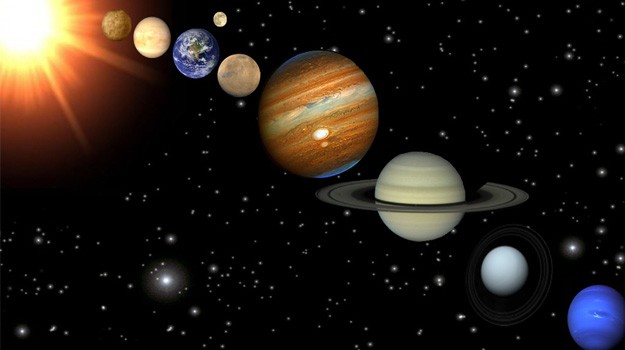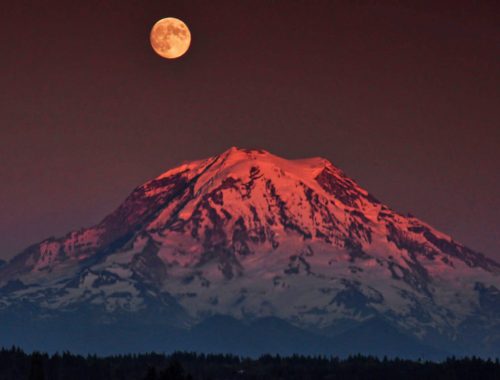BY KATHERINE HIGNETT in Newsweek
Some scientists believe a mysterious, as-yet-unseen planet might be causing a number of minor planets to take strangely uniform paths around the sun. But so far, the elusive celestial object has remained undetected.
Back in 1846, astronomer Johann Galle observed Neptune for the first time after its position was predicted by mathematician Urbain Le Verrier. Scientists had spotted something strange afoot in the orbit of Uranus, and Le Verrier thought another planet was to blame. Sure enough, when he sent his findings to Galle, the astronomer located Neptune from the Berlin Observatory.
Planet 9, scientists think, might be causing similar perturbations today. “If things are in the same orbit, then something’s pushing them,” Scott Sheppard, an astronomer at the Carnegie Institution for Science in Washington, said of the strange minor planets to Quanta Magazine back in July.Recommended Slideshows
Unlike Neptune, Planet 9 would be much harder to capture through a telescope. Astronomers Michael Brown and Konstantin Batygin think the mysterious orb might travels on an elliptical orbit up to 1,000 times further from the sun than Earth, Quanta noted. This means the planet travels through an incredibly dark region of space where the sun’s rays are relatively weedy.
But increasingly impressive telescopes are helping astronomers get closer to finding—or discounting—Planet 9 once and for all.
Perhaps most promising is an upcoming project called the Next Generation Cosmic Microwave Background Experiment, which astronomers hope will shed light on space mysteries like neutrinos, dark energy and cosmic inflation. The ambitious project will use ground-based telescopes with highly sensitive cameras to “provide a dramatic leap forward in our understanding of the fundamental nature of space and time and the evolution of the Universe,” its website states.
See All Of The Best Photos Of The Week In These Slideshows

File photo: Mysterious planets are depicted in space.GETTY IMAGES
“There would be nowhere for Planet Nine to hide once this thing was turned on,” Gilbert Holder, a cosmologist at the University of Illinois, told Quanta.
This project, however, is years from completion. Other scientists turn to the data we already have. Astrophysicist Matthew Holman at the Harvard-Smithsonian Center for Astrophysics told Quanta that data from Cassini’s voyages near Saturn doesn’t quite match up with the orbit you’d expect from a solar system without Planet 9. Even though it’s effects on the giant Saturn would be small, he thinks that trace might just exist. “If you put a planet in…the fit would be better,” he said.
But NASA thinks noise from Cassini itself is enough to explain these kinds of discrepancies.
Read More: Conspiracy Theorists Think Planet X Will Kill Us All Soon—here’s Why They’re Wrong
Whether it exists or not, astronomers will keep on searching for Planet 9 in diverse and creative ways. Some scientists have even turned to historical art to probe the possible planet. Researchers are matching up depictions of comets in medieval art to known comet movements. Exactly when those comets were visible, they previously told Live Science, “depends on whether our computer simulations include Planet Nine.”
“So, in simple terms,” they added, “we can use the medieval comet sightings to check which computer simulations work best: the ones that include Planet Nine or the ones that do not.”
However it’s found, or disproved, the hunt for elusive planet is throwing up all kinds of exciting astronomical discoveries. “We’re trying to find anything that goes bump in the night, really,” Sheppard said.




